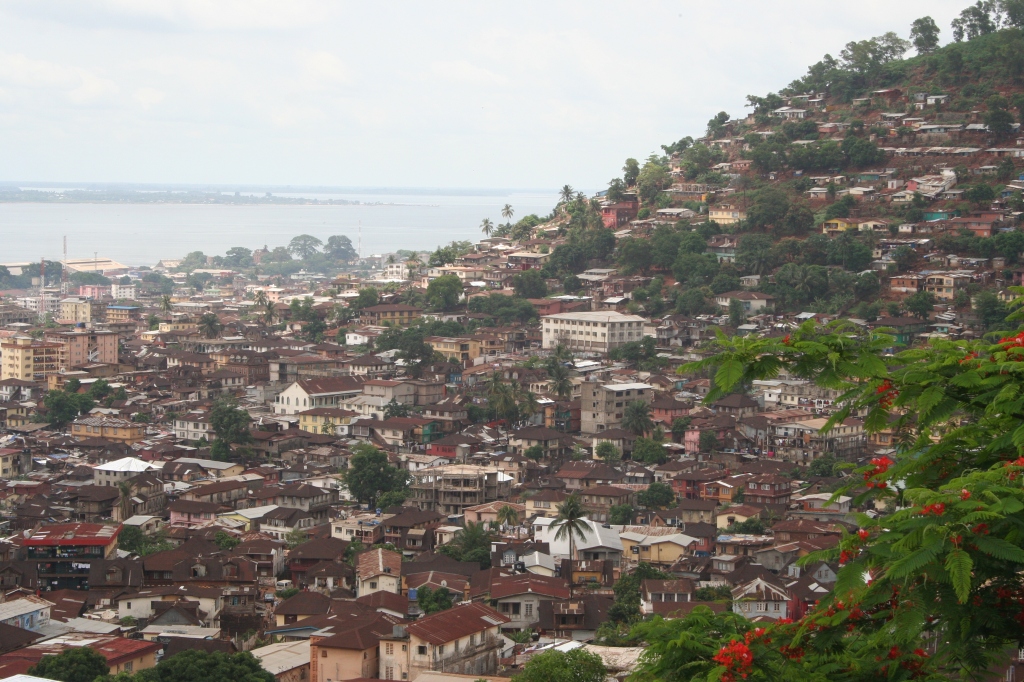I’ve visited Sierra Leone twice, once in 2007, five years after the brutal civil war (my paywalled piece for The Times here – and later in 2010 (my piece for The Independent on Sunday here – when a nascent tourism industry was just beginning to gain momentum.

By 2010, tangible progress was apparent. In Freetown the drone of generators and rattle of water trolleys was no more, refuse had been collected, streets had been cleaned. A raft of Sierra Leoneans had returned from long sojourns in Europe and the US, many with the intent to help rebuild their country.
Having read his enthusiastic and informative Visit Sierra Leone (visitsierraleone.org) newsletters I finally met propagandist-turned-tour-operator Abimbola Carrol in Freetown during this latter trip.
In the light of the Ebola epidemic, an undeserved assault on Sierra Leone’s hard won progress, I emailed Abimbola for his appreciation of recent events. Below, pretty much unedited, are his responses to my questions.
Interview with Abimbola Carrol. Freetown/UK. November 2014.
Q: What was the mood in Sierra Leone before Ebola?
The mood was generally positive. The economy was looking healthy with real GDP growth for 2014 forecast at around 14%.
The tourism industry which is closely related to my business was also expecting an increase as new hotels were coming online, other improvements in the sector and as a result of the overall economic growth.
Q: Were there obvious shortcomings that led to the current crisis?
There were a few things but I think primarily as this is a completely new region for this disease it was unexpected and weak

health systems made it worse. Everyone was blind-sided and opinion on the best way to halt the spread was conflicted. This is the first time the disease has made its way to urban areas, and since then everyone has been playing catch up. By the time it was declared a global problem, it was effectively out of control and even then response was slow.
Q: What are the effects on daily life?
Africans are an expressive and affectionate people. So I think instructions not to touch, or care for loved ones that may have fallen ill go against our intrinsic response. It is not easy to change one’s behaviour almost overnight, especially if there is an underlying lack of trust in the messenger. The no contact rule (for the most part), the presence of chlorine buckets and the more frequent sound of ambulances are probably the most visible effects.
An unfortunate consequence of this outbreak is that deaths from other diseases (treatable in some cases) have also increased because of fear of Ebola and lack of urgency.
Q: What’s the economic impact?
The Minister of Agriculture was quoted as saying “The economy has been deflated by 30% because of Ebola“
It’s devastating and could get a lot worse if the disease is not eradicated before long. We have seen the collapse of a major mining company (London Mining) in which Ebola played a part. In other cases there have been staff lay offs and salary cuts.

The hospitality industry has probably taken the most direct hit. My company has seen a 90% reduction in some of the services we offer. The leisure aspect of our business is almost at zero and we’ve had 100% cancellations on all tours from October to June next year.
In May we had nine flights operating to Sierra Leone. By the end of October we were down to two with one reducing its frequency. Thankfully just last week Air Cote D’Ivoire started operating. Elsewhere, some hotels have closed and the local entertainment industry is non-existent. The movement of people and goods is also restricted so very few industries are unaffected.
Q: How do Sierra Leoneans rate the international response?
It became clear that it was beyond Sierra Leone’s capacity alone to deal with Ebola, so we are grateful for the international response. Their efforts combined with those of local players means that the level of optimism is higher than at any point prior.
Q: We’ve all heard how ‘fragile’ and how ‘ill-prepared’ Sierra Leone’s health system appeared. How are people helping themselves?

Yes, that has been well documented. The response from Sierra Leoneans both within Sierra Leone and outside has been outstanding; coming from individuals, students, organisations, companies, religious groups and civil societies. They have been involved in everything from volunteering, direct fund-raising, gift packages for health workers, lobbying international MPs to developing a workable plan for the implementation of Convalescent Serum Therapy (CST).
The medical professionals, pickup teams, burial teams, contact tracers and all those who continue to put themselves on the frontline have done this country great justice.
Q: What do you think the future holds? Is the spirit of the people crushed or is there an underlying resilience?
When you consider what we have been through it would be safe to say that we Sierra Leoneans have enormous resilience. This does not mean that we can continue to go through these horrors in our lifetime. Sierra Leoneans deserve better.
We just need to keep singing from the rooftops about all the things that make Sierra Leone and West Africa great. The future remains bright because the potential and the positives of Sierra Leone outweigh that which continues to hold us back. We have to believe this, if only for our children’s sake.
Abimbola Carrol: Biog.

Sierra Leonean born, Abimbola Carrol lived in Sierra Leone before the conflict forced him to flee in 1997 and continue his studies in the United Kingdom. Driven by a desire to portray a positive side of his country, he set up Visit Sierra Leone (http://www.visitsierraleone.org) in 2004. Relocating back to Freetown in 2007, he began his tour operator business and continued efforts to brand the country as a tourist destination. Like others in the travel industry, Abimbola’s business has taken a direct hit as a result of the economic effects of Ebola.


Leave a comment